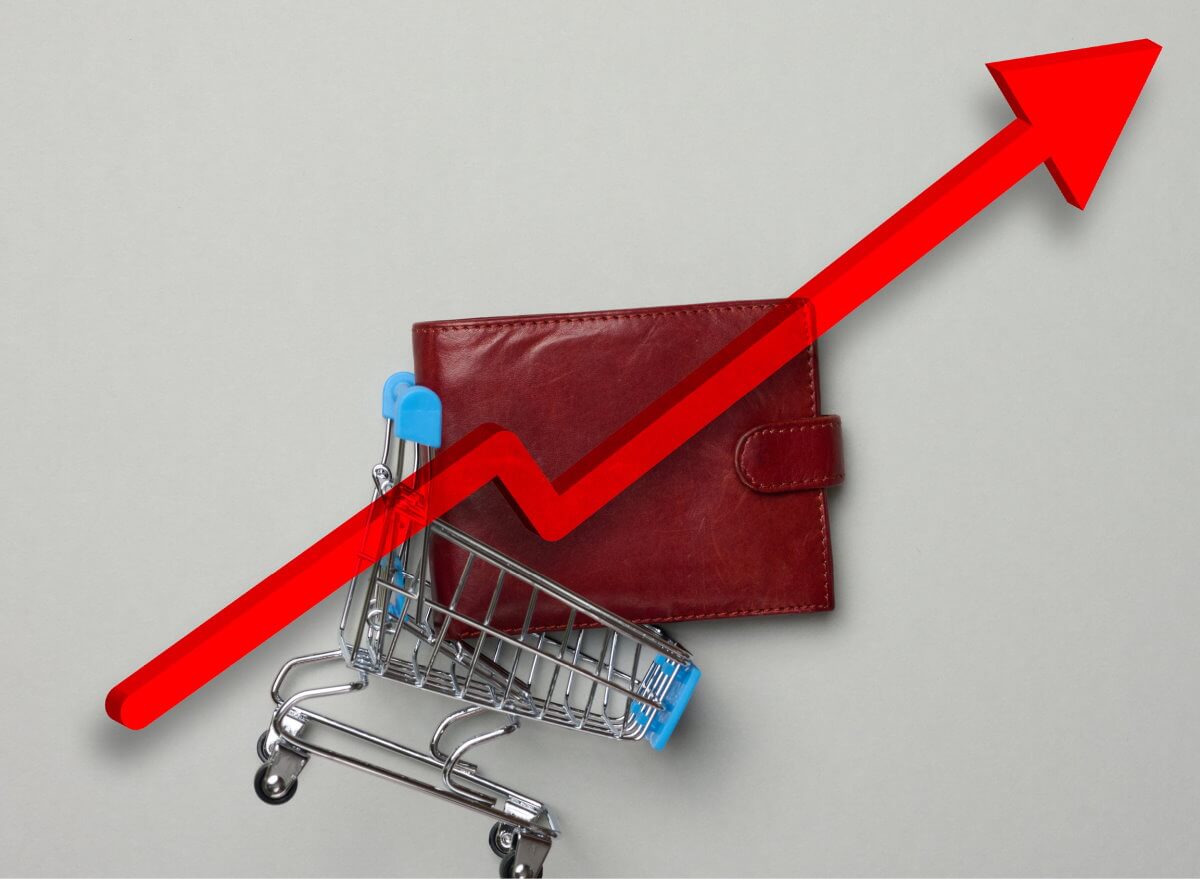“Inflation eats away at our purchasing power, there is no escaping it” – Pedro Antunes
A lot of people tend to say they don’t like or quite understand economic issues. But at the end of the day, it’s the economy, with all its complexity, that determines a lot of aspects of our daily lives. In the past months, Canadians have felt that more than ever.
With inflation rates rising, and even reaching record levels, every time a person goes to the gas station to fill the tank, to the grocery store to buy food, pays rent, their mortgage or other credit debts, when they borrow money from the bank… they realize that their money is worth less than it was a month before, and for some families the economic struggles just got much worse.
Since this is a subject that affects us daily, and the importance of understanding what’s going on just increases in difficult and uncertain economic times such as the one we’re facing, Milénio Stadium has dedicated this edition to talk about inflation and ways people can navigate these turbulent times. To explain, in simple terms, what is causing this reality and how we can better deal with our money, we invited an expert in this area. Pedro Antunes is Chief Economist of the Conference Board of Canada, Canada’s largest independent, not-for-profit applied research organization. Pedro helps give some clarity to the topic and gives a realistic perspective of the scenario and shares his point of view of what the future holds for Canadians.
 Milénio Stadium: Can you explain, in a simple way, what is inflation?
Milénio Stadium: Can you explain, in a simple way, what is inflation?
Pedro Antunes: Inflation is the change in price for a basket of goods that the typical Canadian purchases. For many Canadians, the basket would include food, rent, the cost owning a home, gasoline, services like travel, restaurants or physiotherapy, clothing, and durable goods like cars, appliances, and furniture. If the basket cost $100 in August last year, and it cost $105 in August this year, then inflation was 5 per cent (year-over-year) the percentage change in the value of the basket. Statistics Canada’s basked is very detailed, and there are nuances to how prices changes are captured, but that is essentially how the CPI and inflation is measured.
MS: What are the main causes of these record levels? How does that affect our daily lives?
PA: There are 2 main causes. First is pandemic related. For most developed economies governments borrowed massively to support businesses and households through the pandemic shutdowns. They did this through direct transfers and by lowering interest rates. When the economy started reopening, spending took off—on housing and durable goods at first; with spending on clothing, accommodation, food, and travel now catching up. Demand picked up more quickly than businesses and global supply could match, thus resulting in inflation that really started taking off over the second half of 2021. The second main cause is the Russian invasion of Ukraine, which has added to global inflation because of a massive hit to global commodity prices such as oil and gas, food, minerals, potash (to name a few). These commodity price increases are still feeding high inflation through the production chains.
MS: What can be done, by the population, to deal with this reality?
PA: For most Canadians, it’s very hard to escape. We can adjust what we put in our basket to favour items that are less expensive or haven’t increase as much, but inflation eats away at our purchasing power, there is no escaping it.
MS: When the Bank of Canada raises its interest rate, what does that mean? How does it impact mortgages or credit card debts?
PA: Interest rates are on the rise, the Bank of Canada has increased the Overnight Rate from 0.25 per cent in February to 3.25 per cent today (300 basis points). We’ll likely see more increases before the end of the year. Higher interest will stress the ability of Canadian households to carry their debt. During the pandemic, Canadians took on a massive amount of new mortgage debt. Higher interest rates will have an immediate impact on lines of credit and consumer financing rates, but they will take more time to have the full effect on mortgage carrying costs. This is because mortgages are typically taken for a five-year term, so the full impact is felt over time as more and more households renew their mortgages.
MS: We have had these high inflation rates in the past. Can past actions help us deal with the current situation?
PA: We haven’t had a problem with inflation in Canada for over 30 years but the solution to fighting inflation is the same today as it was in the past. Central banks need to slow economic activity and they do that by raising interest rates. The question is whether they can successfully manage a soft landing, or whether we end up with Central Banks overshooting (raising rates too high) resulting in a recession (a hard landing scenario).
MS: The opposition parties tend to blame the Liberal government’s posture during the pandemic, spending in social benefits, as the responsible for this rising inflation. In your opinion would a more conservative approach from the government during that period have saved us from the current situation?
PA: We implemented government support programs during the pandemic that were necessary—how else to shut down the economy (to prevent Covid) without causing massive pain to those losing their income. However, we could have planned for more prudence since the economy has reopened, at both provincial and federal levels of government. This year’s federal budget for instance, was planning for a sizable deficit, despite the fact that the economy was already at full employment.
MS: A lot of experts have been saying a recession is in our economic future. What do you foresee?
PA: We’re calling for a soft-landing scenario. We expect higher rates and inflation to result in weaker consumer spending growth and weaker economic growth in the coming months, this will help inflation ease and allow the Bank of Canada to pause on interest rate hikes. The result will be very weak economic growth in 2023, but not a decline. If inflation is curbed, we could expect a bit of a rebound in 2024. Having said this, internal and external risks are very high. We could easily see a recession caused by a hard landing in the United States or Europe. Any escalation in the Russia-Ukraine conflict could also result in another bout of inflationary pressures that would likely lead to global recession.









Redes Sociais - Comentários